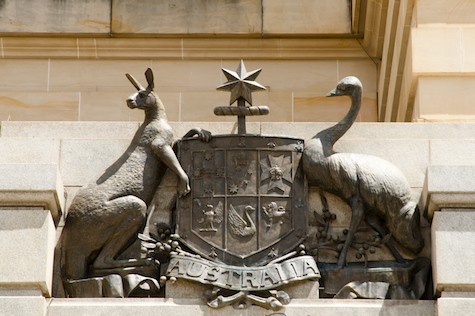New laws come into effect from July 1

.
| From July 1 to October 31, individuals and businesses submit their tax return to the Australian Taxation Office (ATO). |
|---|
The national minimum wage has increased
As of July 1, Australia's minimum wage will officially be $23.23 per hour.
This follows a decision by the Fair Work Commission to raise award wages by 5.75 per cent and the minimum wage by 8.6 per cent.
No more LMITO (known as lamington)
The low and middle-income tax offset (LMITO) will not be available for the 2022-23 income year.
The LMITO was a temporary tax cut for anyone earning up to $126,000, with the greatest benefit of $1,500 going to those taking home between $48,000 and $90,000 in 2021-22.
Your superannuation has increased
The super guarantee (SG) is the proportion of wages that employers must contribute to their workers' retirement savings.
And it's gone up again this year.
From 1st July 2023, the superannuation guarantee will increase from 10.5 per cent to 11 per cent.
It will continue to rise by 0.5 per cent on July 1 each year until it reaches 12 per cent in 2025.
For retirees, the temporary reduction on minimum super drawdown rates will end.
This measure was first introduced in 2019-20 as part of the previous government's response to COVID-19.
It meant retirees only needed to withdraw 50 per cent of age-based minimums, should they choose, to help them through the pandemic.
Working from home
The fixed rate method for calculating your deduction for working from home expenses has been increased.
From July 1, 2022, the fixed rate method is 67 cents per work hour.
Previously, the fixed rate method was 52 cents per hour.
Almost 5 million Australians claimed work from home expenses last financial year, but the ATO has changed the methods you can use to claim tax deductions this tax time.
"We've got two methods now in which you can claim your working from home expenses," says ATO Assistant Commissioner Tim Loh.
"We've got the actual cost method — you need to be able to portion out the private expense versus the work-related expense [and] that method requires really significant records — and the fixed-rate method."
First home owner schemes eligibility expanded
The eligibility criteria for the federal government’s Home Guarantee Scheme has been expanded.
This includes the First Home Guarantee, Regional First Home Guarantee and Family Home Guarantee.
From 1st July, friends, siblings and other family members will be able to jointly apply for the First Home Guarantee and Regional First Home Guarantee.
Both schemes were initially restricted to married and single people, and those in defacto relationships.
These schemes will also be available to non-first home buyers who have not owned a property in the past 10 years.
Previously, the First Home Guarantee and Regional First Home Guarantee schemes were restricted to married and single people, as well as those in defacto relationships. (ABC)
Cheaper child care
From July 10, families earning less than $530,000 will be eligible for increased childcare subsidy.
Rates would be lifted for every family with one child in care earning less than $530,000 in household income, and higher subsidy rates for second and additional children in care would be kept.
Labor's website outlines the plan which would "lift the maximum childcare subsidy rate to 90 per cent for families for the first child in care".
The subsidy increases would also be extended to outside school hours care, according to the same policy document.
Extra parental leave
New parents will be able to claim up to 20 weeks of paid parental leave, with partnered couples able to split the leave between them.
Parents who are single at the time of their claim can access the full 20 weeks.
Families and new parents will be eligible for new benefits this July. (ABC News: Brendan Esposito)
Currently, parents are eligible for 18 weeks of paid parental leave and two weeks of secondary carer leave, both paid at the minimum wage.
Age pension is changing
From July 1, Australia will have to wait until they turn 67 to be eligible for the age pension.
This is an increase from the current 66 years and six months.
However, you can submit your claim in the 13 weeks before you reach Age Pension age.
TSMIT increasing
From 1st July 2023, the Temporary Skilled Migration Income Threshold (TSMIT) will increase from $53,900 to $70,000.
The TSMIT is the minimum salary that must be paid to a sponsored employee to obtain a temporary skilled visa in Australia.





